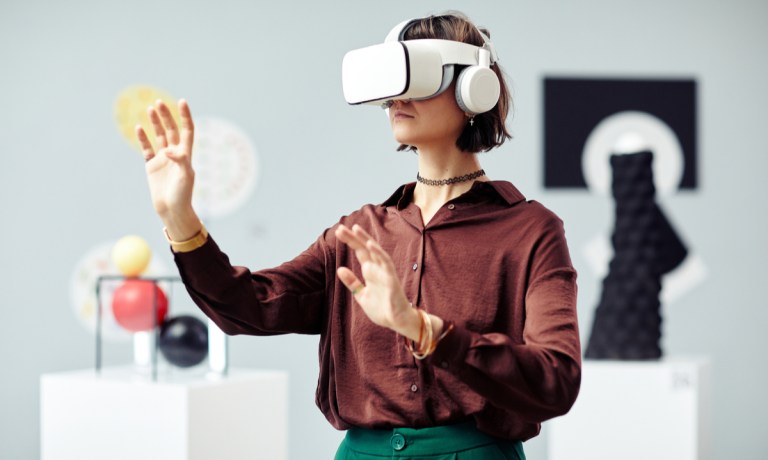Google, Meta, Apple Receive FCC Approval to Tap Into Airwaves for VR and AR

Google, Meta and Apple have received approval from the Federal Communications Commission (FCC) to use airwaves for their virtual reality (VR) and augmented reality (AR) tools.
This decision marks a milestone for the development and expansion of immersive technologies, Bloomberg reported Thursday (Oct. 19).
The permission granted by the FCC allows these tech giants to tap into airwaves used by Wi-Fi-enabled devices, enabling the deployment of goggles, in-car connections and other wearable gear.
“These are the airwaves where we can develop new wearable technologies,” FCC Chairwoman Jessica Rosenworcel, said. “In other words, these are the airwaves where the future happens.”
All three companies — Apple, Meta and Google — are actively working on augmented reality eyeglasses. With the permission to use the 6 GHz band, they can now connect these glasses with smartphones and explore various applications. One use case mentioned in the FCC filings is the exchange of navigation data between smartphones and vehicles.
The approval from the FCC is seen as a significant milestone for the tech industry.
“We commend the FCC’s decision allowing companies like ours to use new wireless technologies to build the next wave of computing,” Kevin Martin, vice president of North America policy at Meta, said in an emailed statement to Bloomberg.
This development is expected to accelerate the advancement of virtual and augmented reality technologies. With access to the airwaves, the three Big Tech firms can now push the boundaries of what is possible in the realm of VR and AR. The ability to connect seamlessly with smartphones and other devices opens up a wide range of potential applications.
The impact of this decision extends beyond just the tech giants involved. It paves the way for further innovation in the VR and AR space, encouraging other companies to explore and develop new wearable technologies. The FCC’s approval signals a recognition of the importance of these emerging technologies and their potential to shape the future.
As these companies continue to work on their respective VR and AR projects — including Apple’s smart glasses and Meta’s introduction of a gaming subscription service for its VR headset — the FCC’s permission to utilize airwaves will undoubtedly play a crucial role in their success. With the ability to tap into these frequencies, Google, Meta and Apple can overcome connectivity challenges and deliver more immersive and seamless experiences to users.